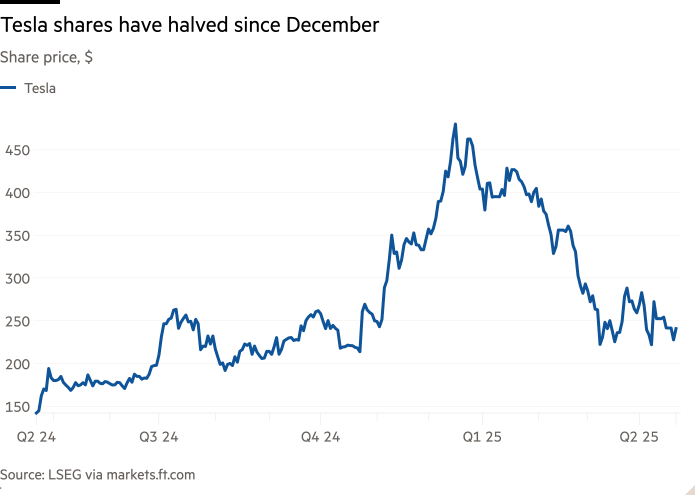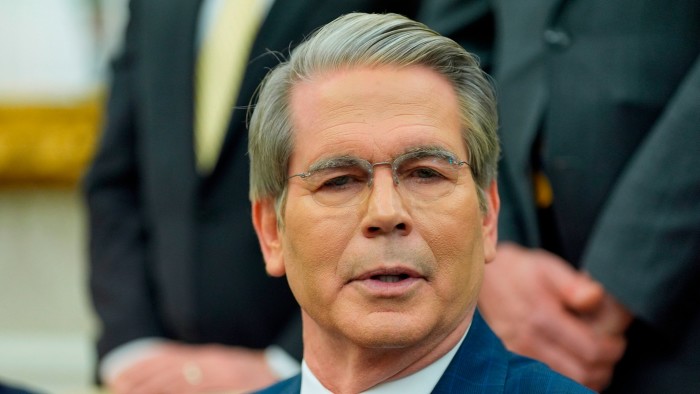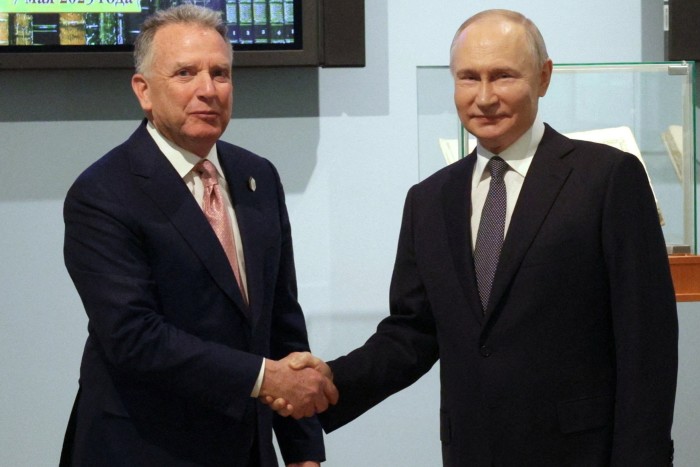Western carmakers plot China comeback with local knowhow
Stay informed with free updates
Simply sign up to the Automobiles myFT Digest — delivered directly to your inbox.
Western carmakers will fight back against domestic rivals in China this week, launching new software and intelligence capabilities in vehicles produced with local partners as they attempt a comeback in the world’s largest car market.
The country’s annual auto show, held in Shanghai this year, will provide the first real test for overhauled strategies. Volkswagen, Toyota and others have adopted “in China for China” plays to win back consumers who have shifted to more affordable and tech-packed electric vehicles from homegrown brands.
Mercedes-Benz will launch its electric CLA model in China later this year, with its central “brain” being an operating system developed with its local research and development team. The car will have improved driving range and charging speeds and more advanced autonomous capabilities.
“We feel very confident about our technology and intelligence right now,” said Magnus Östberg, Mercedes’ chief software officer, in an interview.
“It’s going to be a battle of the numbers — who has the longest range,” Östberg said. “But I think we are going to stand very, very firm and in the front row in that competition with the CLA.”
Rival BMW will also launch its Neue Klasse electric vehicles, produced in China from next year with the involvement of its local R&D and design teams and local technology partners Alibaba and Huawei.
“It’s time to find out if [foreign carmakers] have made good enough EVs,” said Li Yanwei, a member of the China Automobile Dealers Association expert committee.
Their market share in China stood at 31 per cent in the first two months of this year, less than half the 64 per cent they held in 2020, with Geely and BYD overtaking Volkswagen’s long-held position as the best-selling brand, according to Shanghai consultancy Automobility.
Sales of electric vehicles and plug-in hybrids account for 45 per cent of China’s new car sales.
Some western auto executives have conceded they are unlikely ever to recover their dominance in China but carmakers are keen to rebuild their positions, especially as the escalating economic warfare between Beijing and Washington puts more pressure on the industry.
To do that, many are turning to partnerships with Chinese companies to absorb their technological knowhow and respond more rapidly to Chinese consumers — echoing the strategy Chinese companies took from the 1980s of learning from their western rivals.
Audi, for example, will display its first production model for its new China-only sub-brand, without its iconic four-ring logo. The model uses a vehicle platform co-developed with its Chinese partner SAIC aimed at younger local consumers. The company will also have 18 other models at the trade show.
“Last year, we took key steps to secure future success in China,” Audi’s chief executive Gernot Döllner said in a statement. “At 2025 Auto Shanghai, we are going to show that Audi delivers in China.”
Paul Gong, an auto analyst at UBS, said joint ventures between global carmakers and their Chinese partners used to serve as sales channels for models made by foreign carmakers. But now, “there are more and more cases where Chinese carmakers provide a model design”, he said.
Examples include the Mazda EZ-6, an electric sedan built on its partner Changan’s self-developed power train architecture, and the Toyota bZ3X, a $15,000 electric SUV that was developed using Chinese state-owned GAC’s EV platform and shares more than 40 per cent of its components with GAC’s Aion V model.
Toyota — especially its luxury Lexus brand — has better weathered the tough market conditions, with 1.8mn China sales in 2024, only an 8 per cent decline from its 2021 peak.
Even so, the world’s largest automaker is pivoting towards a new China strategy: handing far more power to its Chinese regional chief engineer, increasing local research and development resources and leaning more on its joint venture partners FAW and GAC.
“Rather than Japanese people making cars for the Chinese, it will be more Chinese people making cars for Chinese people,” chief financial officer Yoichi Miyazaki said in November. “We want to go a step further in that direction. We will have cars like that to show people in about two to three years.”
Before this week’s show, Toyota’s China arm said its Japanese parent would hand it product development authority so it could pursue “Chinese thinking by Chinese minds using Chinese methods”.
One area where Toyota will maintain stronger control in China is through the Lexus brand. In February, it announced plans to build a battery and EV factory in Shanghai to produce Lexus models, which will be only the third site in China to be fully owned by a foreign automaker.






